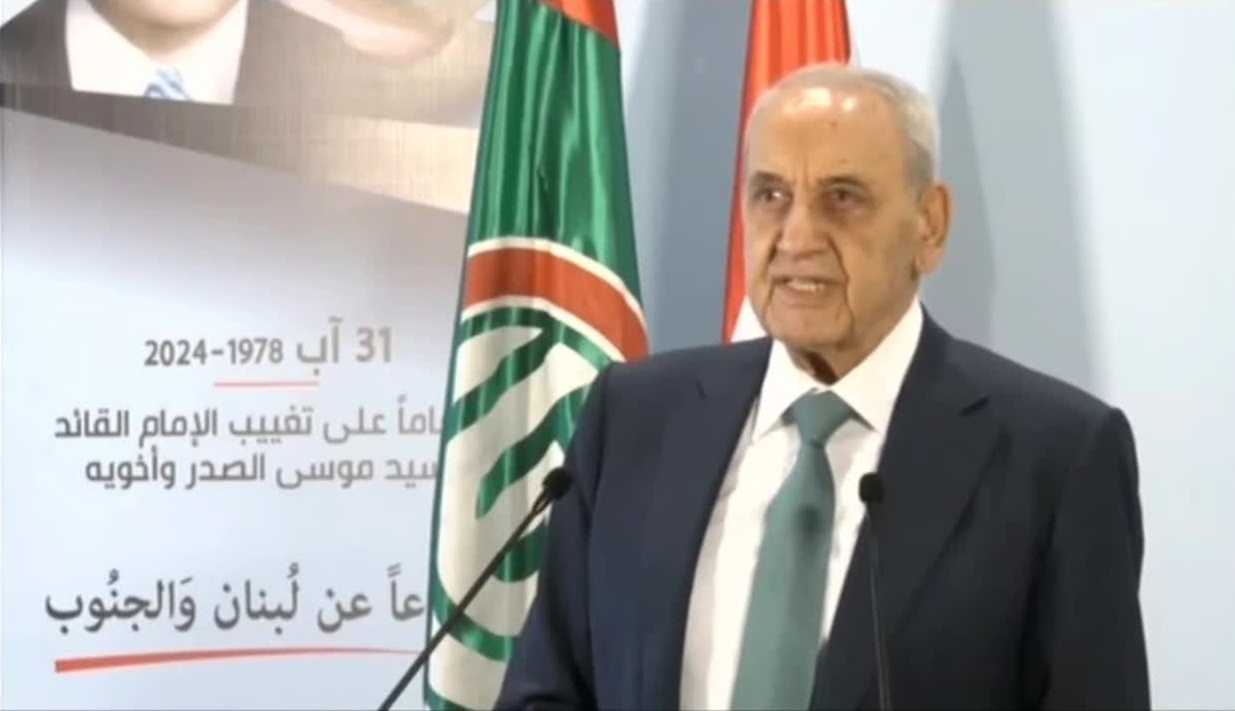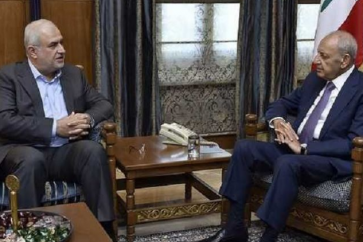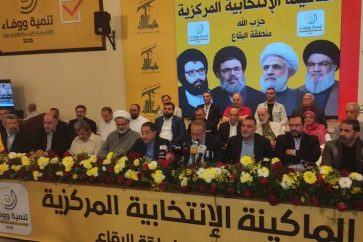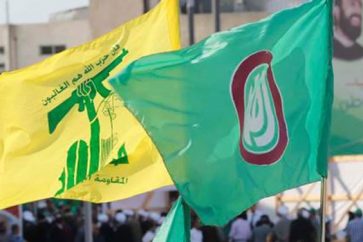Additionally, Speaker Berri emphasized that the Israeli enemy has transformed the Lebanese border villages adjacent to occupied Palestine into scorched land, employing internationally banned weapons such as phosphorus, cluster, and concussion bombs. He noted that the enemy is systematically destroying homes and vital infrastructure, burning agricultural and forested areas, and targeting ambulances.
Berri noted that `Israel` has repeatedly expanded the scope of its aggression into Lebanese territory, including Beirut’s southern suburbs, Sidon, Tyre, and the Bekaa regions of West Bekaa, Mid Bekaa, Baalbek, and Hermel.
He also stated that the targeting of civilians in multiple towns reveals Israeli occupation’s premeditated intentions towards Lebanon, which are accompanied by a continuous stream of escalating threats from Israeli leaders.
On behalf of the Amal Movement, Speaker Berri reaffirmed that `Israel` is the ultimate evil and that any form of engagement with it is forbidden.
Lebanon Committed to UN’s 1701
Furthermore, Speaker Berri reiterated Lebanon’s commitment to the provisions of UN Resolution 1701, noting that all international and UN envoys acknowledge that the area under UNIFIL’s operation has been the most stable region in the Middle East since 2006.
Regarding the issue of displaced persons from southern Lebanon, Berri affirmed that this matter is of utmost humanitarian and national importance. He expressed gratitude and appreciation to every Lebanese citizen, especially those in the resilient mountains, the north, the Bekaa, and the beloved capital, Beirut, who have opened their homes to host their displaced brethren from the south.
Berri called on the Lebanese government, particularly the relevant ministries, to move beyond media spectacles and focus on preparing emergency plans and programs, ensuring a daily presence at the shelters to provide the essential needs that preserve the dignity and well-being of the displaced.
Presidential Vacancy in Lebanon
On the Lebanese presidential issue, Speaker Berri, speaking on behalf of the national duo “Amal Movement and Hezbollah,” emphasized that this is a constitutional, internal matter unrelated to the ongoing Israeli aggression, whether in Gaza or southern Lebanon.
He reaffirmed that the proposal put forward on August 31 of last year remains an open invitation for dialogue or consultation for a few days, followed by consecutive sessions with a constitutional quorum.
Imam Sayyed Mousa Al-Sadr
Imam Sayyed Moussa Al-Sadr founded the Lebanese Amal (Hope) Movement in 1974. The cleric, of Iranian descent, arrived in Lebanon in 1959 to advocate for the rights of Shia Muslims in the port city of Tyre, south Lebanon.
On August 31, 1978, Imam Al-Sadr disappeared during an official visit to Tripoli, the capital of Libya. He was accompanied by Sheikh Mohammad Yaacoub and journalist Abbas Badreddine.
Lebanon continues to hold the former Libyan authorities, under the rule of dictator Moammar Gaddafi, accountable for the disappearance of the trio. Since Gaddafi’s overthrow and death in 2011, both Lebanon and Iran have repeatedly urged the Libyan government to investigate Sadr’s disappearance.




